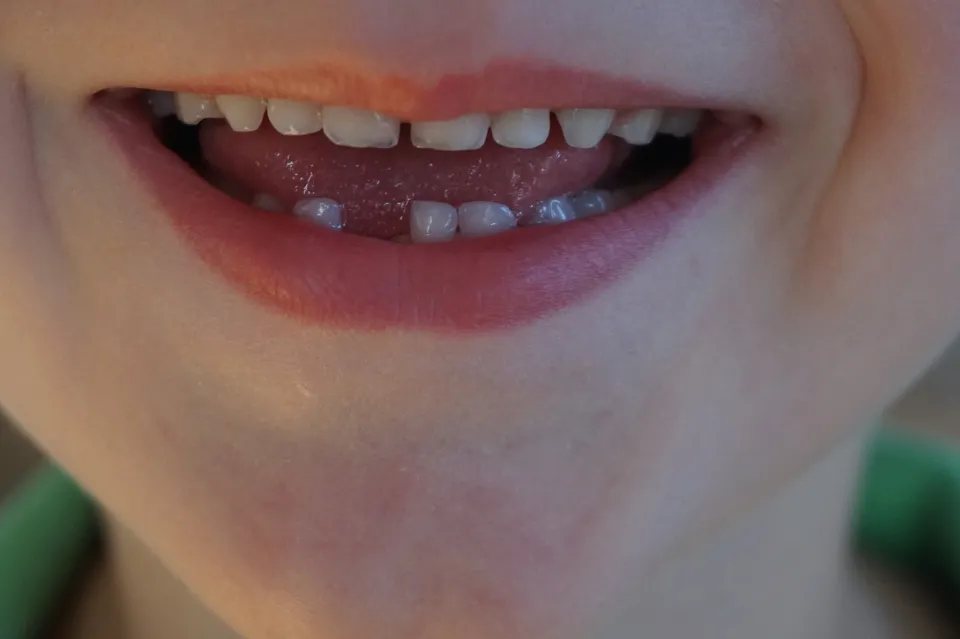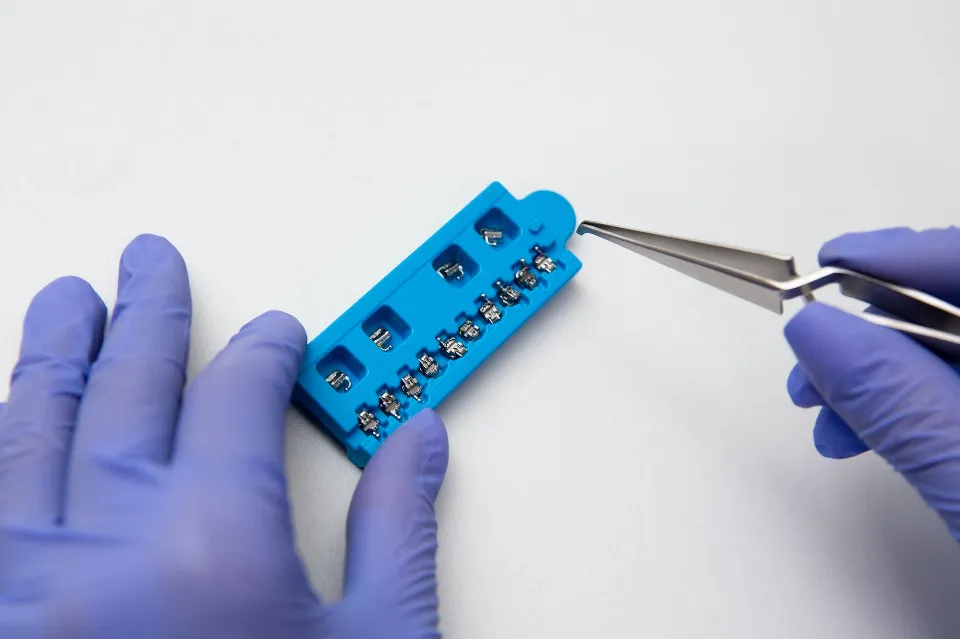
Can Braces Fix Gaps in Teeth – Everything You Need to Know
Are you embarrassed by the gaps between your teeth? Do you aspire to a perfectly straight smile? The solution you’ve been looking for may be braced in that case. For years, orthodontic problems like tooth gaps have been fixed with braces.
This article will explore the world of braces and show you how they can be used to close gaps in your teeth. You’ll gain a thorough understanding of how braces can alter your smile, from the course of treatment to the anticipated outcomes.
Let’s get your journey toward a self-assured, gap-free smile underway!
What Causes Gaps in Between Teeth?
There are numerous reasons why a diastema can occur. The most common causes include:
- Having teeth that are widely spaced because your jawbone is too small for them.
- Separation due to an overgrowth of tissue between your gum line and your upper front teeth.
- The front teeth are pushed forward by improper swallowing reflexes and tongue positioning, which results in a gap.
- Leading to tooth loss and gaps due to tissue damage and inflammation.
Children who habitually suck their thumbs can also get a gap between their front teeth.
Read More: What to Do With Gaps in Your Baby’s Front Teeth
The Problem With Gaps Between Teeth

There are a few problems with gaps between teeth that might make someone think about getting orthodontic treatment to close the gaps.
Gum Health
Teeth gaps may be filled for both cosmetic and functional reasons. The main issue with gaps is that gums are not shielded while eating. Soft gums can be harmed by foods that are hard, such as potato chips and crusty bread.
Dental Concerns
Plaque accumulation between teeth with gaps can result in decay and bad breath. Unprotected gums are more susceptible to developing periodontal (gum) disease. Periodontal disease, if left untreated, can eventually cause teeth to become loose in the gums and, in the worst cases, to fall out.
Before the orthodontist can close gaps with various appliance types, such as braces or clear aligners, if gaps are developing as a result of gum disease, it will be imperative for you to treat the gum disease. If you have gum disease, your orthodontist can examine you and determine if the gaps are developing as a result.
Aesthetics
Many people don’t have a problem with gaps between their teeth, and there is no medical justification for doing so. Some people dislike how their teeth’s gaps make them look. They dislike the way their teeth appear spaced apart and feel self-conscious when they speak or smile because of the gaps.
Will Braces Fix My Gap?
In order to end the suspense and finally respond to the question, “Can braces fix my gap?” braces can indeed fix your gap. It’s more complicated than just a simple “yes,” so let’s explore the reasons why you might want to close the gap between your teeth and how braces can do that.
How Long Does It Take to Close a Tooth Gap With Braces?

The use of braces to close a gap is a relatively easy process in theory. You must make an appointment with an orthodontist, who will create a treatment strategy tailored to your particular needs. The orthodontist will likely place spacers during the second appointment you’ve scheduled so that your teeth have enough room for the braces. To start moving your teeth, brackets, and bands will be positioned over the course of the following two or more visits.
After getting braces, plan to wear them for at least six months, though most people keep them on longer. Before their teeth are properly straightened, most people need to wear their braces for a year or two, but without an examination, it’s impossible to know for sure how long you’ll need to.
For instance, a person who has a large gap or several gaps will frequently need to wear braces for a little longer than a person who only has a small gap. Even after the gap is closed, braces may still be required if your tooth gap is a symptom of a larger dental issue that requires attention.
Does It Hurt to Fix a Gap With Braces?
Unfortunately, braces have a reputation for being painful. Fortunately, even though it’s true that a lot of people feel a little uncomfortable after getting braces, most people say they feel better in a short amount of time. It shouldn’t hurt any more than other orthodontic procedures to close the gap.
Also keep in mind that bridging a gap over time can actually stop further harm and suffering. For instance, the increased exposure in a gap can make it simpler to harm your gums. Additionally, tooth misalignment can result in tooth decay, a painful bite, and other problems. By correcting misalignments and gaps, pain can be avoided in the future.
Will the Gap Be Closed Permanently?
Can braces permanently close gaps in teeth? If you want to close a natural gap in your teeth, you may be wondering if braces treatment will solve the issue permanently or just while the braces are on. You wouldn’t want to undergo realignment surgery only to have your teeth shift back to their original position afterward. This is especially valid if your alignment problems have the potential to harm your oral health.
Your teeth can be realigned with braces, which are made to hold them in place for as long as they are fastened. You’ll probably need to take extra steps after your braces are taken out to maintain the training your teeth received to stay in their new position rather than the position they assumed naturally. Retainers are frequently used to maintain your teeth’s alignment for as long as possible. Depending on your particular situation, your orthodontist may advise you to wear one during the day, at night, or both.
If braces and retainers don’t close the gap, more advanced treatment options are available. For instance, the orthodontist might think about using dental bonding to permanently close the gap. If you’re worried that your natural gap will reappear, speak with your orthodontist about other treatment options or how to make sure the braces procedure lasts over the long term.
Are There Better Orthodontic Options Besides Braces?
While traditional braces are a great way to close a tooth gap, there may be other orthodontic procedures that offer even greater advantages. For instance, not all treatment options are appropriate for everyone, and many people prefer to avoid braces for aesthetic reasons. While wearing braces is certainly acceptable, you should be aware that there are other approaches that can close your gap just as successfully.
The Invisalign system, a collection of clear plastic aligner trays created especially for your mouth, is one of these additional options. Gaps can be filled effectively and covertly with Invisalign. Similar to traditional braces but much more covertly, lingual braces close gaps in the teeth by adhering to the inside surface of the teeth. Finally, ceramic braces function in the same way as conventional braces but use brackets made of tooth-colored ceramic as opposed to conventional metal. Which option might be best for you? Ask your orthodontist.
Conclusion
If your orthodontist suspects a problem, you should think about closing your gap even if you don’t find it bothersome. Your orthodontist’s job is to ensure that your teeth are healthy and properly spaced. Taking care of your gap now could save you money later if they determine that it could cause more serious issues in the future.





Average Rating